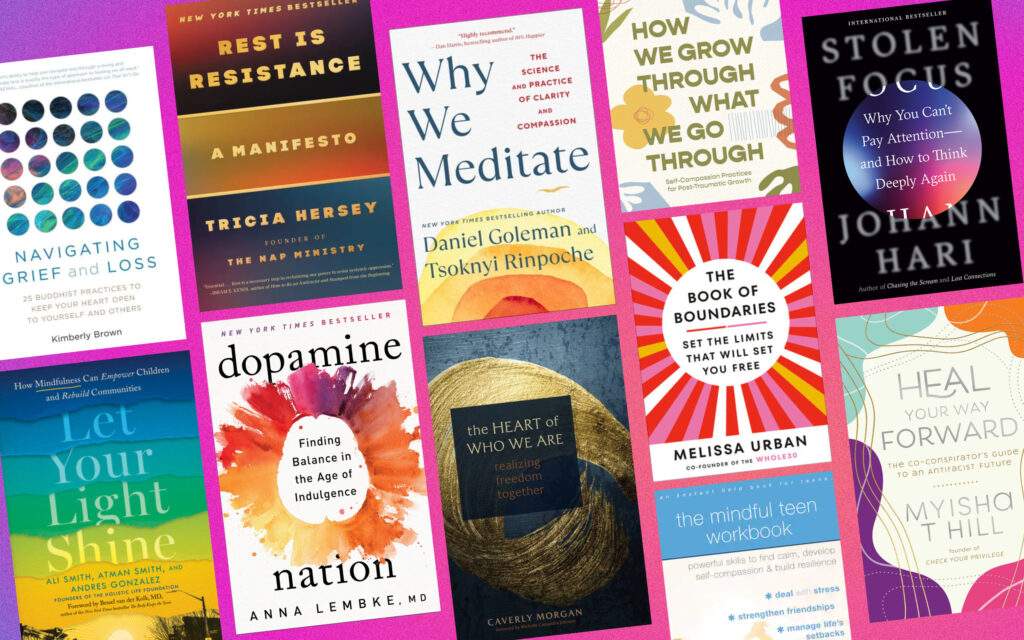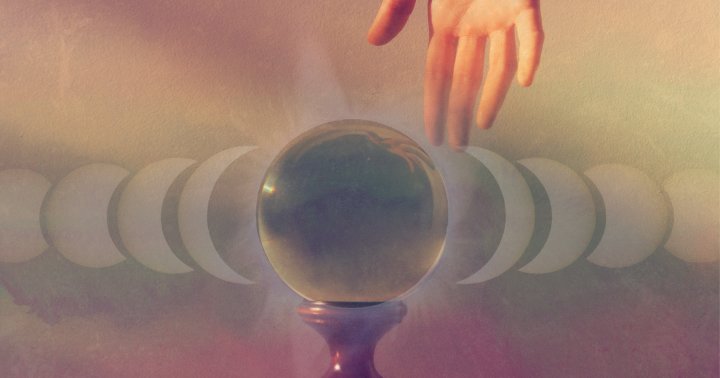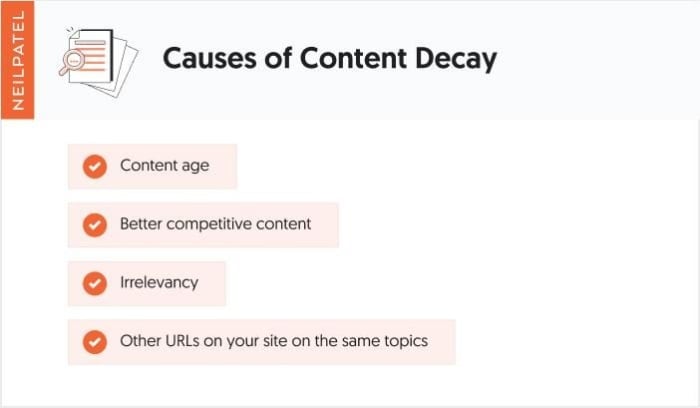The Best Mindfulness Books of 2022
The Mindful editors look back on their favorite books published this year. The post The Best Mindfulness Books of 2022 appeared first on Mindful.

Throughout this year, we’ve savored and learned from an abundance of new books about mindfulness. From understanding the science of meditation to navigating difficult emotions to showing up with kindness and self-compassion (and maybe even changing your world), here are the Mindful editors’ picks for the best mindfulness books of 2022.
The Best Mindfulness Books of 2022
1) Let Your Light Shine
How Mindfulness Can Empower Children and Rebuild Communities
Ali Smith, Atman Smith, and Andres Gonzalez • TarcherPerigee
In this book, the founders of the Holistic Life Foundation (HLF) offer a compelling and comprehensive blueprint for radical change that begins with each of us and uplifts all of us. We get to know the Smith brothers and Gonzalez, their best-friendship, and the ways the HLF grew organically from the Smiths’ roots in the rough neighborhood of West Baltimore where they were raised by adults with deep meditation and yoga practices. Today, they offer yoga and mindfulness programming in underserved communities, empowering children and adults alike to become stewards of change.
Early in Let Your Light Shine, the reader meets the lovable and wise Uncle Will, the Smiths’ godfather and mentor to all three authors. He told the boys, “I’m not a teacher, I’m a reminder,” which became a central idea to their programming. “Even if we don’t all know all the details, we feel the facts of American history in our bones and see it reflected back to us, in the societies we live in,” the founders write. Immediately, they lay a groundwork of honesty that they maintain throughout the book. They ask the reader hard questions and keep us accountable. And they don’t over-promise. The authors are clear about the messiness of the journey of first healing oneself, and then the unpredictability of helping to heal our communities, especially when working with children. Rolling with whatever arises is part of the work.
“The ones who are suffering, the ones who make you most angry, or have the most frustration, they’re the ones who need the love most,” they write. “We really need to go out there and spread love. So making a change, making people teachers, empowering them with the practices, is what you do to make a bigger change.” This book offers the practical tools, compassion, and permission we need to help make that change. –AWC
2) Dopamine Nation
Finding Balance in the Age of Indulgence
Anna Lembke • Dutton
In Dopamine Nation, psychiatrist Dr. Anna Lembke unpacks the neuroscience of dopamine with a lens of compassion rarely offered to the topic of addiction. Meanwhile, her matter-of-fact tone offers a realness that drives home the importance of paying attention to balance when we’re like “cacti in a rainforest.” Almost all of us will experience a feeling so good that we can’t stop wanting more, and understanding the “why” can help us hold one another accountable without holding each other back. With compelling anecdotes from both clients and Lembke herself, the author illustrates what the science looks like in real life and helps us understand the dopamine-saturated world we live in. – AWC
3) Heal Your Way Forward
The Co-Conspirator’s Guide to an Anti-Racist Future
Myisha T. Hill • Row House
Myisha T. Hill believes that transforming harmful systems and preventing future harm begins with healing ourselves. In 2018, Hill—a mental health activist, speaker, and entrepreneur— started Check Your Privilege, a global movement supporting people in becoming anti-racist. With Heal Your Way Forward, she provides a roadmap guiding white “co-conspirators” to do the inner work of uncovering for themselves what allyship means. “When we choose to heal,” Hill writes, “we recognize the journey as a life calling, and when we heal ourselves, we help heal humanity.”
Hill pinpoints that many aspiring allies get stuck and end up “ghosting” (abandoning, as in dating lingo) our anti-racist journey, in part due to the shame we feel over our complicity in systems of harm. She emphasizes that the priority isn’t to become “perfect” allies overnight, but rather to accept our discomfort as an inevitable part of our growth. “That’s the call to this work; the embodiment, the practice, the giving yourself grace to get things wrong is how we heal our way forward and toward liberation.” Liberatory practice includes opening up to our grief, too: It is emotional vulnerability that lets us deeply connect with others. And this often difficult inner work is crucial if we’re to unlearn performative anti-racism (such as the most visible activism in 2020 and 2021) and commit to this journey with authenticity, for the long term.
Among the contemplative tools Hill recommends are walking meditation, self-compassion, and radical listening, along with the reflection questions at the end of each chapter. And, she tells us, “Living into the work is essentially a journey into mindfulness.” As in mindfulness, our anti-racism healing journey invites us to accept that our path forward will not be linear or predictable. It’s a path of opening to many perspectives, many truths, instead of fighting to narrowly define and control. “As we begin to trust nuance and messiness,” Hill writes, “we make space to allow the middle to be a place of uncharted territory that helps us to lean in to our discomfort and trust the unknown.” – AT
4) Navigating Grief and Loss
25 Buddhist Practices to Keep Your Heart Open to Yourself and Others
Kimberly Brown • Prometheus Books
With compassion and humility, teacher and author Kimberly Brown offers a hospitable respite of a book for anyone experiencing grief and loss. In this inclusive and kind volume, Brown uses heartfelt examples from her own life and relatable scenarios from others’ lives to illuminate kinds of grief we might be facing—whether as the result of a death that’s sudden or expected, the loss of a job, a marriage, or even the loss that arises when we realize our family doesn’t have our back the way we hoped they would. Though Brown references Buddhist teachings and practices here, she also provides secular interpretations that make this book truly useful and welcoming for any reader. The 25 practices she includes are delivered approachably and with beautiful encouragement, meeting readers wherever they may be. Brown is real about her own sometimes difficult journey with mindfulness meditation. She makes it clear that she has walked the walk—and that none of us need walk alone. – SD
5) The Book of Boundaries
Melissa Urban • The Dial Press, Penguin Canada
That subtitle makes a heck of a promise, but for people-pleasers who struggle with the idea that “No, thank you,” can be a complete sentence, The Book of Boundaries, by Whole 30 cofounder Melissa Urban delivers a compassionate, practical, relatable roadmap to finding, articulating, and holding boundaries. Urban has become known for this work on social media, where she regularly offers mini-scripts for expressing boundaries (from I’m not drinking right now to Please don’t talk to me about my body or my food consumption to I won’t be letting inappropriate jokes in the workplace slide anymore), and here she expands on that work. There’s some introductory talk about her own journey to boundary setting, which began as she struggled with drug addiction, and a chapter on what boundaries are, how to notice when you might need to set one, and the feelings that might arise when you consider holding your boundaries. Most helpfully, Urban organizes her framework into relationships—with parents, bosses, coworkers, spouses, friends, ourselves. Within those relationships she offers clear language for communicating about all manner of situations where we may need to hold space for ourselves—from unsolicited health or parenting advice to the expectation that we’ll check our work email while on vacation.
For many of us for whom boundary-setting is not intuitive, a script makes it possible to actually start to do the work.
Urban’s writing is deeply hospitable—she writes with confidence, humor, and enough self-deprecation to keep it real. She understands that for many of us for whom boundary-setting is not intuitive, a script makes it possible to actually start to do the work. While this book may not change your life (Urban is confident to a fault, perhaps!), it can certainly help you change your approach. And who knows where that might lead you? — SD
6) The Heart of Who We Are
Realizing Freedom Together
Caverly Morgan • Sounds True
“This book is for you,” Caverly Morgan emphasizes throughout its chapters. “Thank you for picking it up. For being in this conversation. For saying yes to this relationship.” That’s what reading the book feels like: a relationship. A meaningful discussion with a friend on privilege, societal conditioning, Love (with a capital L), belonging, and how we move “from the personal to the collective.” Morgan tells stories from her life as if we’ve known her for years and includes contemplative practices in each chapter for those practicing on their own, as well as instruction on how to practice in community. – KR
7) The Mindful Teen Workbook
Patricia Rockman, MD; Allison McLay, DCS; and M. Lee Freedman, MD • New Harbinger
Nothing can kill the spirit of genuine mindfulness more quickly than a one-size-fits-all attitude, and nowhere is that illustrated more potently than with teenagers. If you impose a fixed idea of anything from above and try to impose it—subtly or overtly—teens will reject it and rebel against it.
Why?
Because they should know better?
No.
Because they do know better.
The energy of inquisitiveness and questioning that is a hallmark of mid-adolescence—about 16 to 19 years old, since adolescence lasts from roughly age 12 to 24—is a developmental and societal necessity. Otherwise, no dynamic change would emerge from the next generation of people who will inherit what’s been left for them. If you’re going to teach folks from this age cohort anything, you have to do it in collaboration.
That’s what’s so refreshing about The Mindful Teen Workbook. It’s far from the first mindfulness manual for teens, but it’s definitely an outstanding contribution to the existing literature, and it stands out for its inviting tone. Each chapter is filled with helpful prompts, such as exploring a time when you were really mad and what the sensations felt like. The journey is about inquiry, finding your own path, not indoctrination.
The book emerged from programs developed at the Centre for Mindfulness Studies in Toronto, and it shows. It feels fresh yet also road-tested—you can hear the teachers listening on the page. And for adult helping professionals, there’s a downloadable guide they can use in leading groups of teens in exploring mindfulness. – BB
8) Rest is Resistance
A Manifesto
Tricia Hersey • Little, Brown Spark
In reading what Tricia Hersey calls a field guide to navigate the reality of capitalism and white supremacy, a metaphorical pillow, a map for “rest as resistance,” what is prominent is her continual nods to the work she draws from. Each chapter begins with a spacious invitation to slowly read quotes, poems, rest meditations, and acknowledgments to her inspiration: Afro-futurism, Womanist theology, intergenerational wisdom, and Black Liberation theology, to name a few. Hersey reminds us that the possibilities for rest are endless (even if that requires deprogramming from the fear embedded in “hustle culture”). For you, rest might be accepting Hersey’s invitation to take a nap in the middle of the day. For someone else, rest might be taking a break from social media. We each get to choose what serves our mind and body most, within the restless dominant culture—and Hersey’s gentle call to lie down while reading her book is a modest place to start. –KR
9) Stolen Focus
Why You Can’t Pay Attention and How to Think Deeply Again
Johann Hari • Crown
It may seem like a disconnect to present readers with a 500-plus-page book on the personal and systemic problem of focus degradation, but Johann Hari’s deep investigation of the ways our individual and collective attention has been shattered is highly compelling—and in fairness, almost 200 pages are extensive endnotes and resources. Hari, who resigned from The Independent in disgrace a decade ago, after plagiarizing quotes and smearing his journalistic rivals online, presents a thoroughly articulated, exhaustively reported, and meticulously documented exploration of the change in our ability to resist distraction.
He goes deeply into, and then beyond, the obvious culprits: We are exposed to more information than ever before, which has a tendency to exhaust our attention resources more rapidly; the technology we use, especially smartphones and social media apps, which is designed to keep us coming back for more by keeping us outraged. He explores the effects systemic issues like surveillance capitalism, pollution, and work culture have on our attention, along with childhood trauma, diet, and the dearth of childhood free play. Hari interviews scientists, sociologists, professors, authors, psychologists, tech engineers. He weaves in his own personal journey with focus, and makes a compelling case for what he calls an Attention Rebellion, likening the need for collective social change to earlier struggles for gay rights or women’s liberation. He harkens back to the Industrial Revolution, and the way workers continued to fight, together, for more humane working conditions, which led to the 40-hour workweek, and weekends. Hari points out that we are faced with massive challenges, like the climate crisis—and we’re going to need to be able to pay sustained attention to solving it.
One question he doesn’t address: Will the Attention Rebellion be planned on social media? If you’re feeling that your lack of focus is your fault, let yourself go deep with this book. – SD
10) How We Grow Through What We Go Through
Self-Compassion Practices for Post-Traumatic Growth
Christopher Willard • Sounds True
How We Grow Through What We Go Through offers the reader the latitude to explore how trauma shows up for us as individuals, then the opportunity to consider a personalized path forward with an array of options at our fingertips. Christopher Willard welcomes readers in with a compassionate and easy-to-follow breakdown of the latest neuroscience of trauma. He normalizes and explains the ways traumas and triggers can show up in our bodies, minds, and hearts, offering dozens of mindfulness practices to help each of us tailor our journey to fit what we need in the moment.
“That’s what we can do: We can love ourselves and keep going forward. We may not forget, but we can reset, restart, and rebuild a life stronger for what we’ve been through,” Willard writes. This is a straightforward, unpretentious guidebook for anyone looking to understand their trauma and how science-backed mindfulness practices can help us open our hearts to both ourselves and others in order to heal. –AWC
11) Why We Meditate
The Science and Practice of Clarity and Compassion
Daniel Goleman and Tsoknyi Rinpoche • Atria Books
In each chapter of Why We Meditate, the ball begins in Rinpoche’s court. With warmth and candor, he invites the reader in with a compassionate and personal introduction to a common obstacle to well-being, such as the quick pace of modern life or unhelpful habits we’ve formed. He shares a Buddhist perspective on the topic at hand and skillfully folds in secular concepts and examples that keep the content clear and relatable for any audience, and offers detailed instructions for a meditation practice. Then, Goleman offers his own personal connection to the topic and grounds Rinpoche’s wisdom and advice with a deep dive into the neuroscience behind the practice.
Beginning with the foundations of meditation, the content of this book builds to deep healing practices informed by Buddhist tradition, secular mindfulness, and the latest science. The coauthors offer a balanced, expansive, and profound dive into meditation for practitioners of every level, equipping the reader with a toolbox to go forward and bring their practice with them out into the world. – AWC
The Top 10 Guided Meditations of 2022
To help you deepen your mindfulness practice (or get started), we’ve rounded up a list of guided meditations that have resonated most with our readers over the past year.
Read More
6 Mindfulness Books to Read on Cozy Winter Days
From the science of awe to navigating grief and loss, here are six mindful books and three podcasts to inspire your practice this winter.
Read More

 Aliver
Aliver 
































